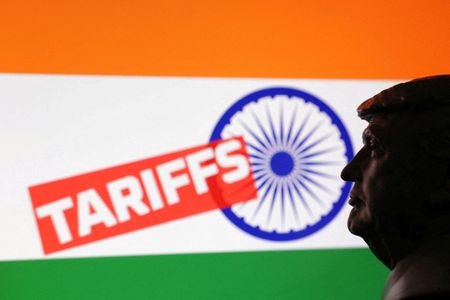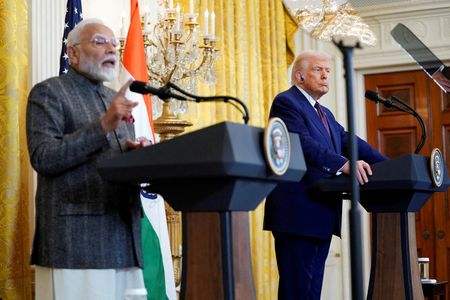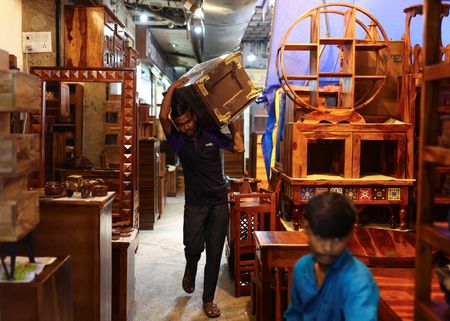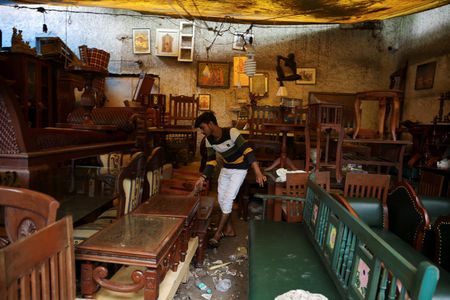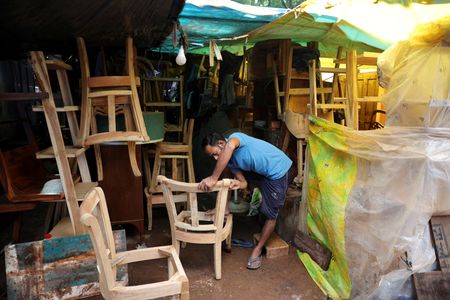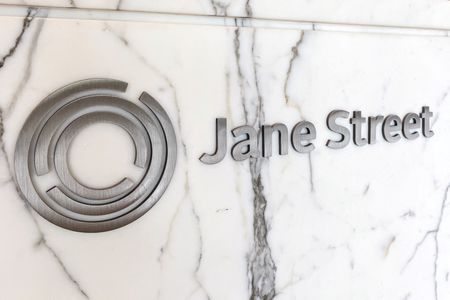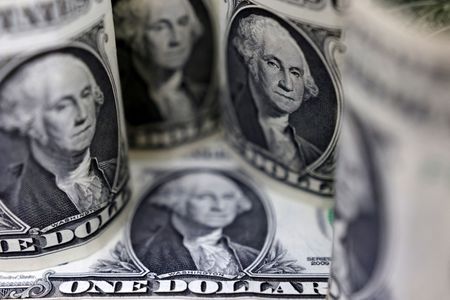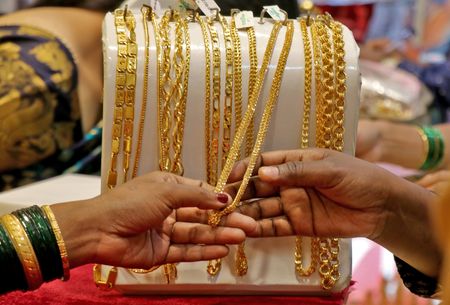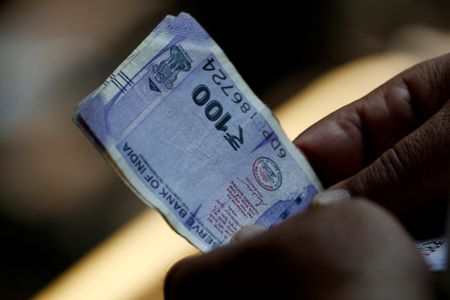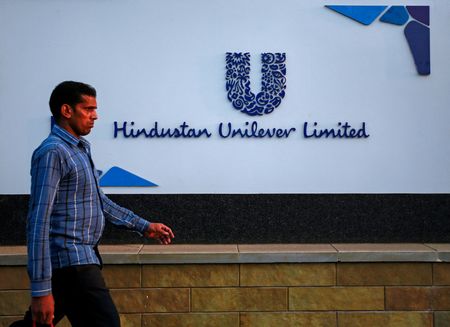By Nikunj Ohri
NEW DELHI (Reuters) -U.S. President Donald Trump on Wednesday slapped 25% tariffs on Indian goods starting Aug. 1, with an additional penalty on Russian oil purchases, and he criticized New Delhi for its “strenuous and obnoxious” non-monetary trade barriers. Trump said later negotiations were continuing.
Following are some of those non-tariff trade barriers, according to a March report by the Office of the U.S. Trade Representative:
IMPORT CAPS
India imposes quantitative restrictions on imports such as pulses and beans, limiting U.S. market access.
In 2023 India imposed limits on imports of laptops and tablets, and announced a new licensing requirement impacting shipments from the likes of Apple and Dell, the implementation of which was extended until December 31, 2025. The goal was to boost domestic manufacturing.
TECHNICAL BARRIERS
India has tightened quality-control standards by making them mandatory across more sectors, including chemicals, medical devices, batteries, electronics, food and textiles.
These quality orders are governed by India’s standards certification authority, are not fully aligned with international standards, and lack clear timelines for transition periods and license validity.
DAIRY
India requires certification that dairy products are not sourced from animals that have been fed meat or animal-based feed to respect the religious beliefs of the population. But this hampers market access for U.S. milk and dairy product exports to India, one of the largest dairy markets in the world.
INTERNET SERVICES AND DATA LOCALISATION
India’s information technology laws impose personal criminal liability on employees, and include “impractical compliance deadlines and take-down protocols”. Since 2021, U.S. firms have been subject to an increasing number of content and account takedown requests that “appear politically motivated”.
India’s draft data-privacy laws require disclosures of personal data to the government, and empower it to restrict cross-border data transfers to a specific country.
ONEROUS CUSTOMS PROCEDURES
U.S. exporters have raised concerns regarding Indian customs authorities’ valuation criteria for imports. Transaction value of imports is rejected by authorities, and U.S. companies have faced investigations for their use of certain valuation methodologies when importing computer equipment.
BANKS AND INSURANCE COMPANIES
The U.S. has flagged curbs on foreign investment in Indian banks and insurers. Ownership in state-run banks is capped at 20% although they have a 60% market share in India and form 67% of bank branches. Foreign banks are subjected to opaque limits on expansion, and state-owned insurers operate under different rules and enjoy government guarantees.
(Reporting by Nikunj Ohri; editing by Mark Heinrich)

